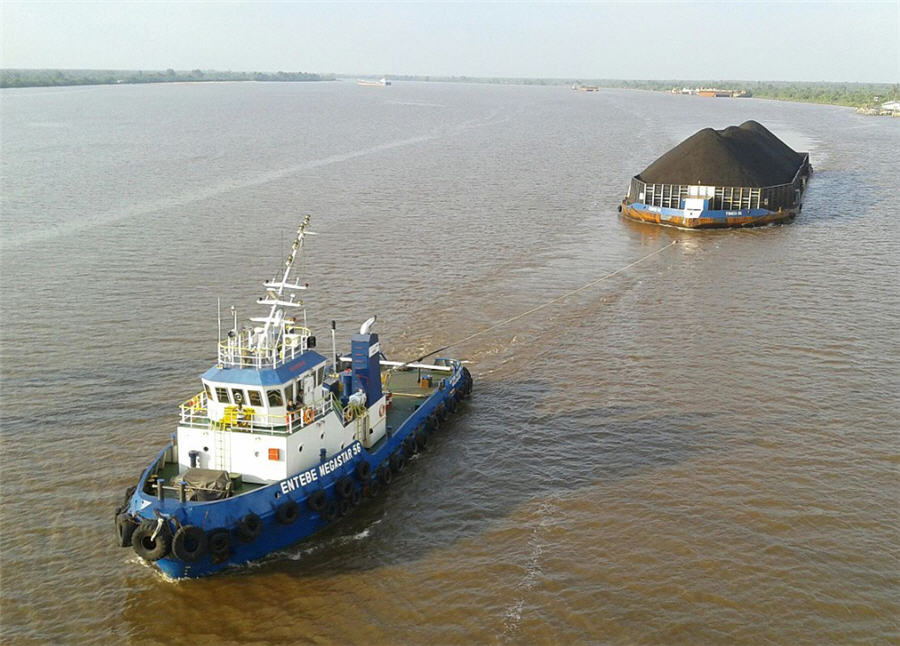
(The views and opinions expressed herein are the views and opinions of the author, Clyde Russell, a columnist for Reuters.)
Thermal coal prices across Asia have surged to multi-year highs amid strong demand and some supply constraints, but some types of the fuel have done better than others.
The headline-grabbing rally has been for high-quality Australian thermal coal. The weekly index for 6,000 kilocalorie per kilogramme (kcal/kg) coal at Newcastle Port, as assessed by commodity price reporting agency Argus, hit $121.40 a tonne in the seven days to June 4.
This was the highest in more than a decade. This grade has now climbed 49% since the end of last year, and 162% from its 2020 low of $46.37 a tonne in September, reached amid the economic fallout from coronavirus lockdowns across Asia.
The driver for the price increase has been strong demand from Japan and South Korea, the main buyers of high-grade Australian thermal coal, amid expectations for a warm northern hemisphere summer that will bring surging power demand for air-conditioning.
Chinese demand for Indonesian coal, which tends to be lower energy than Australian, is also helping drive prices
It’s worth noting that the Newcastle Index reflects a price for relatively small volumes of coal. The bulk of this grade is bought under short- and medium-term contracts, rather than in the spot market.
Nonetheless, the strong rally will feed through to new contract talks. It’s an indicator that utilities are already seeking cargoes to ensure they don’t experience a squeeze, similar to last winter when colder-than-expected weather led to rising demand for electricity for heating.
While it doesn’t grab as much attention, much of the real volume action for Australian coal is in the 5,500 kcal/kg grade. This is the main type sought by Indian utilities, and was popular with Chinese buyers prior to Beijing’s unofficial ban on imports from Australia, imposed last year as relations between the two countries deteriorated.
This grade has also seen prices rise, with Argus assessing 5,500 kcal/kg coal at $70.10 a tonne at Newcastle on June 4 – about double last September’s $35.04.
While a 100% gain looks impressive, it does mean that the lower-grade coal has significantly lagged the rally for its high-grade counterpart.
That reflects the re-adjustment of coal flows across Asia as part of the China-Australia dispute: Australian exporters have had to shift from China to other buyers, most notably India but also smaller importers like Vietnam and Bangladesh, and offer competitive prices to displace other suppliers, such as Indonesia and Russia.
India’s seaborne imports of all coal types combined slipped somewhat in May, dropping to 17.62 million tonnes from April 18.68 million, according to Refinitiv vessel-tracking and port data.
But the breakdown of the data shows that imports from Australia rose to 6.43 million tonnes – the second-highest since Refinitiv started assessments in January 2015, beaten only by the 6.80 million in January this year.
Imports from Indonesia dropped to 5.52 million tonnes in May, down from 6.3 million in April, and well below levels around 8 to 10 million tonnes per month that prevailed prior to the Chinese ban on Australian coal.
But Indonesia, the world’s largest shipper of thermal coal, is switching exports to China, which brought in 11.24 million tonnes from the country in May, well up from 7.52 million in April, and 9.69 million in May 2020.
Chinese demand for Indonesian coal, which tends to be lower energy than Australian, is also helping drive prices. The Singapore Exchange 4,200 kcal/kg coal contract jumped to $57.50 a tonne by June 3, the highest since the contract started trading in early 2018.
The contract ended at $56.66 a tonne on Monday, up 149% since the $22.97 closing daily trade low for 2020, recorded on Sept. 17.
China, which used to count Australia as its second-biggest supplier of coal, appears to be paying a heavy price for its ban on imports from the world’s second-biggest shipper of thermal coal and no. 1 supplier of coking coal used to make steel.
Chinese domestic coal prices have surged this year as utilities struggle to source sufficient supplies, with consultancy SteelHome assessing coal at the port of Qinhuangdao at 923 yuan ($144.21) a tonne on June 7.
While this is below the peak so far this year of 1,038 yuan a tonne, hit on Jan. 20, reached at the peak of winter demand, it is well above the broad range between 460 to 600 yuan that prevailed for the first nine months of 2020.
Overall, the various coal price benchmarks across Asia reflect not only the strength of underlying demand, they also bear witness to the disruption of China’s ban on imports from Australia.
(Editing by Kenneth Maxwell)
Comments